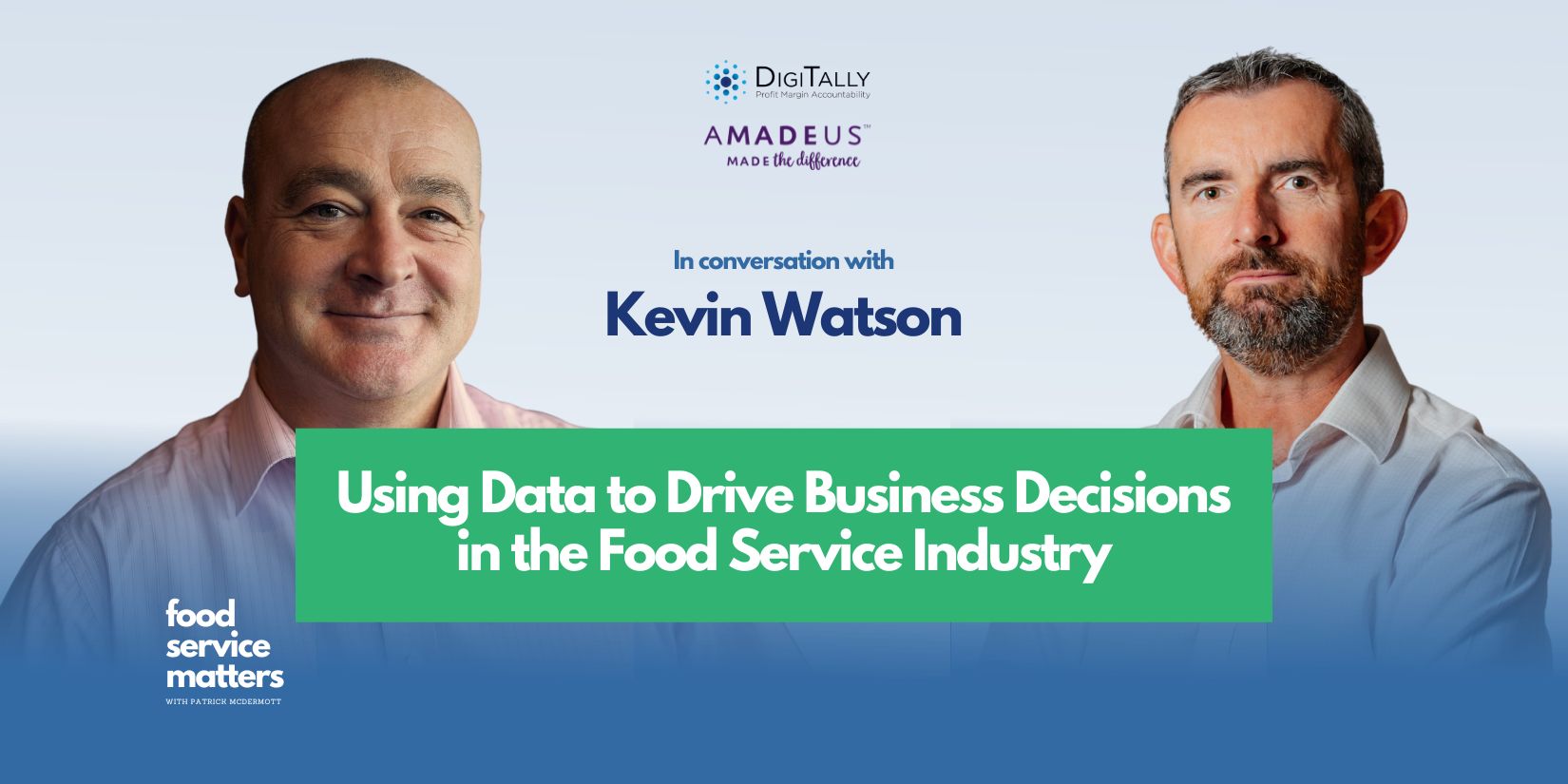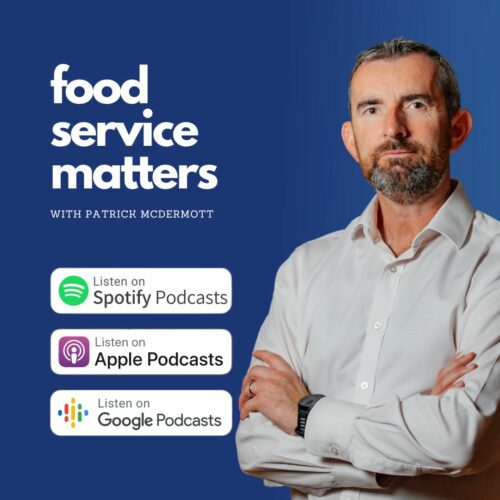
When it comes to customer satisfaction, cost management and staff retention, the food service industry faces constant challenges. But how can this situation be improved? Data-driven decision-making is the answer.
In episode five of the Food Service Matters podcast, host Patrick McDermott talks to Kevin Watson, Managing Director of the award-winning event catering company Amadeus Foods, which counts NEC Birmingham as one of its major clients.
Here, we explore some of Kevin’s key insights on how to leverage qualitative and quantitative data to improve business operations.
Obtain customer feedback
Direct feedback from clients is one of the most valuable sources of information, according to Kevin. He points out, “Instead of individuals internally deciding your strategy or priorities, go out, ask your customers and quantify that data.”
Data collection methods can include surveys, focus groups and even mystery shoppers. Using a variety of approaches allows businesses to cater to the menu items, services and ambiences customers prefer.
Citing the 2012 London Olympics as an example, Kevin describes how Amadeus Foods was surprised to discover that fish and chips was their clients’ runaway favourite dish, despite having 39 other dining options on offer. Insights of this kind enabled the company to make data-driven decisions about which kinds of dishes to prioritise at future events. Businesses can adjust their offerings according to demand by regularly analysing customer feedback in this way.
Measure key costs
Monitoring costs is critical in an industry with tight margins. Kevin stresses the importance of carefully tracking key operating expenses like food, labour and utilities, and using this data to forecast future costs accurately.
For instance, with food inflation at an all-time high, Amadeus Foods prices its menus according to anticipated increases. “There are a lot of cost headwinds that we’ve been battling against, so we’ve had to own some of those through confident pricing,” he highlights.
By keeping close tabs on metrics and watching for sudden changes, food service businesses can catch inefficiencies early on and take action appropriately. “We were able to offset some of those costs with innovation and technology and investing in the right areas,” Kevin adds.
Maintain low staff turnover
Having a strong workforce is a number one priority for the food service industry. A high turnover disrupts operations and negatively impacts customer satisfaction and company reputation. “I think a brand is all about trust and consistency, so you know what you’re getting,” Kevin says.
To maintain its high standards, Amadeus Foods closely monitors turnover rates for both full-time and variable workers. Stressing the importance of these retention metrics, Kevin explains, “Getting staff feedback by religiously doing things like induction reviews and exit interviews provides you with rich forms of data that you must act upon.”
The company has managed to keep turnover under 40 per cent for full-timers and around 75–80 per cent for variable workers by conducting regular employee feedback sessions and measuring these KPIs. This level of staff retention provides tremendous advantages in the quality of recruitment, training and customer service.
The bottom line is that data provides valuable insights into the inner workings of a business. Large-scale food service providers, such as Amadeus Foods, benefit from using technology to make data-driven decisions – something which digital solutions like DigiTally can help with. By gathering and analysing both qualitative and quantitative data in this way, industry leaders can make smarter choices for their companies to thrive in a challenging industry.
To listen to Patrick’s full interview with Kevin Watson, check out the Food Service Matters podcast on Spotify, Apple Podcasts or Google Podcasts.
Patrick is CEO of DigiTally, which is playing an increasingly important role as an intuitive and interconnected simple food service software that helps save time, increase margins and combat food waste. Keen to learn more? Let’s talk! Book a 30-minute call with Patrick and get your demo set up today.



